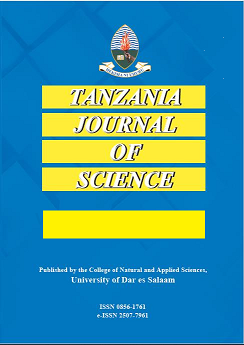Assessment of Post-Harvest Technologies and Gender Relations in Maize Loss Reduction in Pangawe Village Eastern Tanzania
Abstract
In this paper the use of gender sensitive technologies in the reduction of post-harvest maize losses at farm level is advocated as a strategy for household food security. The study was conducted in Pangawe village, eastern Tanzania. It employed participatory approaches to investigate farmers’ perceptions on loss management. Storage trials were carried out to determine maize losses caused by insect pests in the sub-villages. Perceptions were analysed qualitatively and quantitatively. ANOVA assessed losses in storage trials. Major post-harvest processes included farm field; en-route; homestead and storage. All activities except winnowing were carried out by both men and women at varying participation levels using unimproved technologies. Losses at each process varied yet farmers perceived the greatest loss during storage. Storage trials exhibited different insect incidences. Losses in trials were significantly different among the four sub-villages (P<0.05) being lowest at Pangawe-Juu and highest at Legeza Mwendo. It is concluded that, the missing link in post–harvest maize loss reduction in all the phases in Pangawe is the availability of appropriate technologies. The Pangawe Community Post-harvest Action Plan (PCPAP) strategies are recommended as a model for rural areas for promotion of gendered maize post–harvest management in order to revitalize the agricultural sector.


